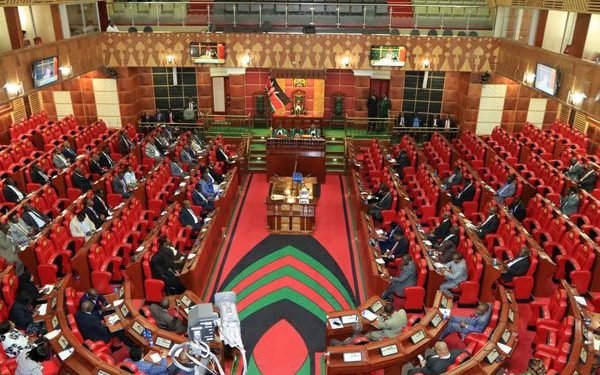The Public Debt and Privatisation Committee wants external borrowing to be guided by projects that promote export-driven production to address forex exchange imbalances.
The Committee’s review of sectors financed by loans borrowed between May 2022 and April 2023 amounting to Sh213.24 billion, indicates that they targeted sectors with greater social returns but minimum financial returns.
Between May 2022 and April 2023, 19 externally financed loans, amounting to Sh213.24 billion, were signed between the national government and international creditors.
Between May and August 2022, 6 loans amounting to Sh105.06 billion were signed; between September and December 2022, 8 loans valued at Sh43.38 billion were signed and in the January to April 2023 period, five loans amounting to Sh64.8 billion were signed.
During the review of the loan reports, the committee noted that only three loans worth Sh24.2 billion, primarily commercial loans, had been partially disbursed, indicating a disbursement rate of less than 11 per cent. The disbursed commercial loans were primarily used for general budget support.
Other loans contracted during the period included bilateral or multilateral loans intended for infrastructural projects, energy sector, education sector, and other projects with high social impact.
“External borrowing should be driven by financing requirements for sectors or development projects that promote export-driven productions in order to address forex exchange imbalances,” said Abdi Shurie, Chairperson, Public Debt and Privatisation Committee.
The Committee also wants the National Treasury to address factors that affect timely and full disbursement of loan financing and submit a report to the National Assembly indicating actions to increase the efficient disbursement of loan financing.
The committee noted that given the number of undisbursed loans, there is an increased likelihood of incurrence of commitment fees, among other charges.
“No later than 30 days after the end of each financial year, Ministries, State Departments, and Implementing Agencies responsible for projects for which loans have been obtained, should submit a report to the National Assembly indicating measures taken to ensure timely and full disbursement of all loans in their purview.”
In order to facilitate oversight of debt and to promote transparency and accountability of loan contracts, the committee wants the national treasury to attach the contracts signed against each submitted report and not to enter into any contract that does not adhere to the law.
“The National Treasury should should prioritise the sourcing and disbursement of concessional finance. Concessional Finance contains a grant element, implying that larger borrowing can be sourced with minimum impact on debt sustainability by reducing the refinancing and interest rate risk.”
The total public debt stock as of end of April this year amounted to Sh 9.634 trillion (approximately 66 per cent of GDP). This comprised of Sh5.09 trillion in external debt and Sh4.54 trillion in domestic debt. The national debt has increased consistently over the years due to the incurrence of the fiscal deficit.
Kenya’s public debt rises to KSh 7.7 Trillion in June (kenyanwallstreet.com)




